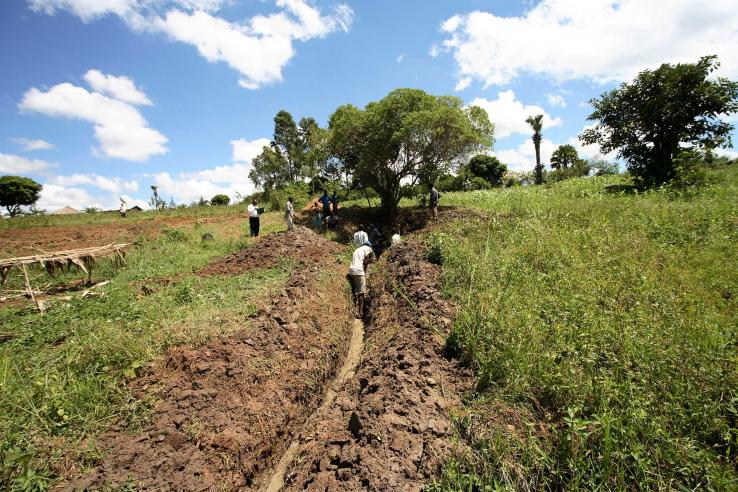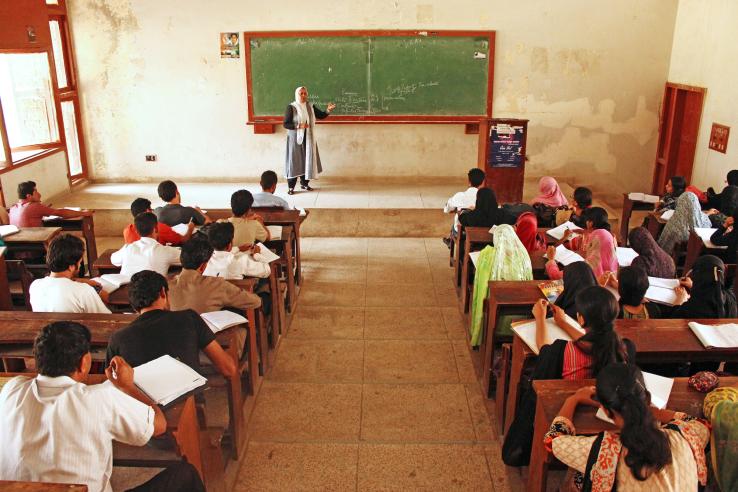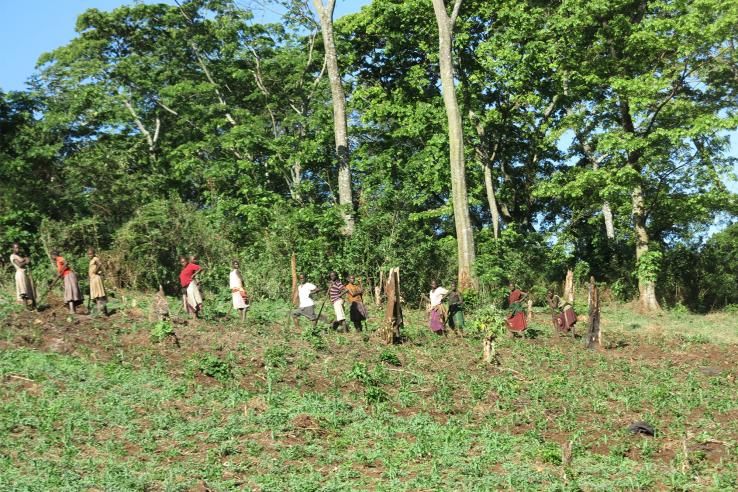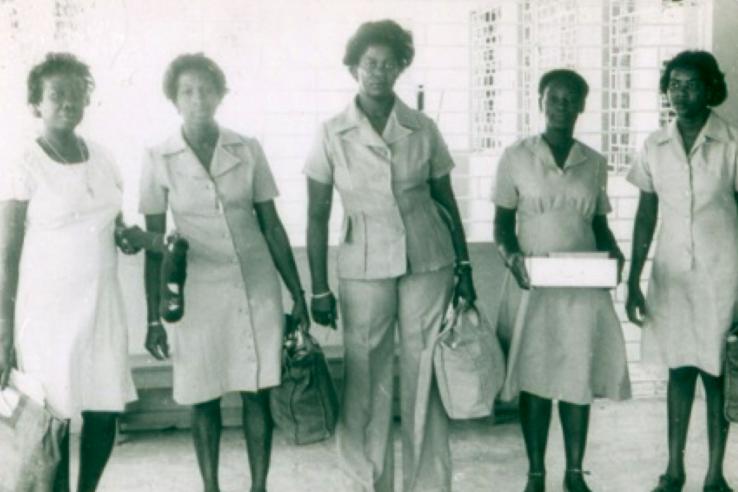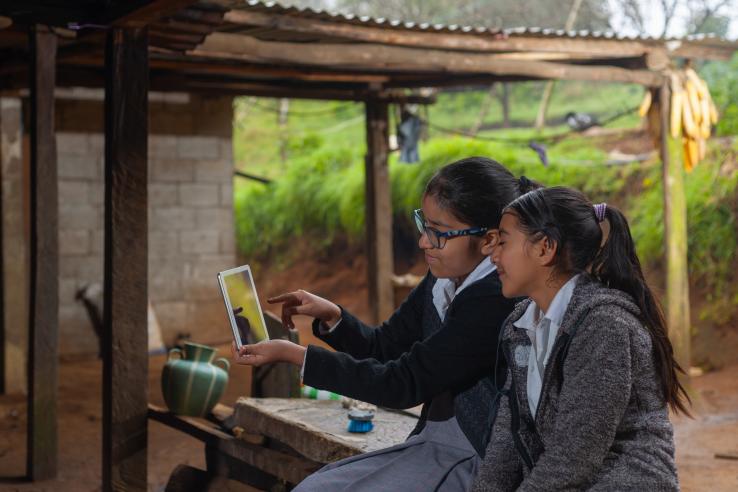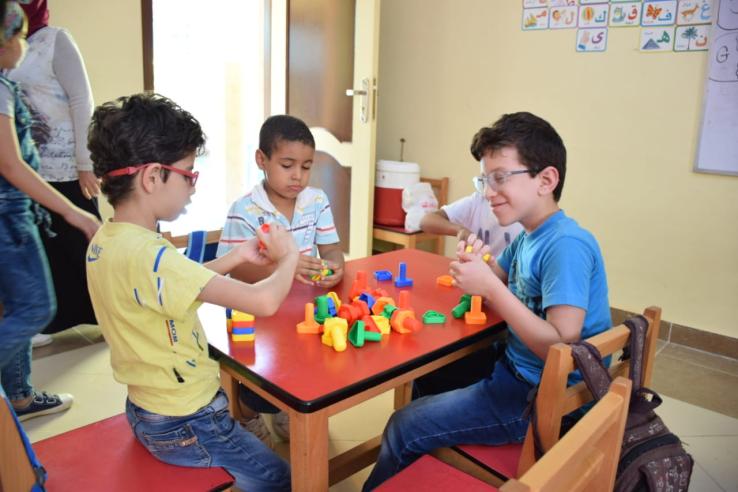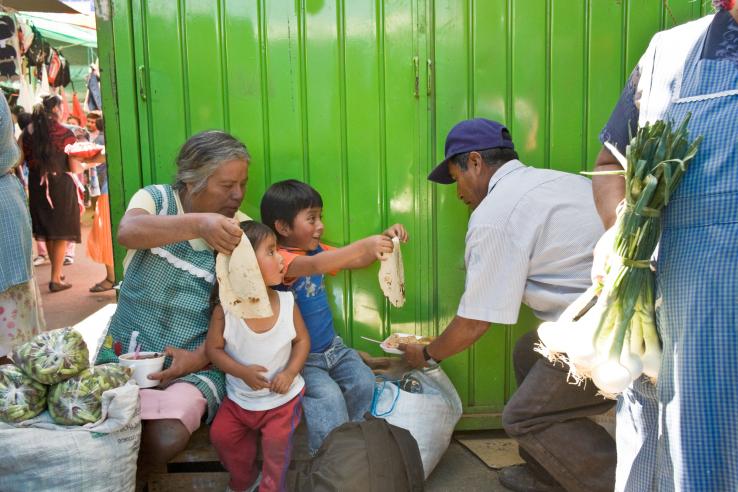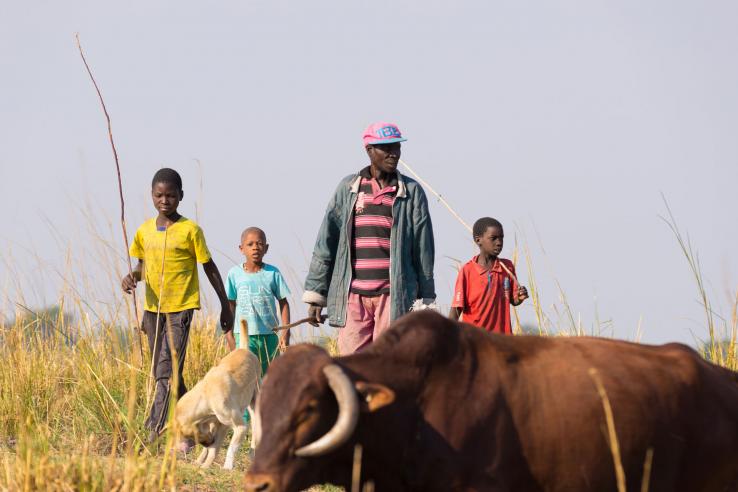Displaying 4981 - 4995 of 8417
Evaluation
In partnership with Nyala Dairy Cooperative, researchers evaluated the impact of offering asset collateralized loans for rainwater harvesting tanks on both credit access for dairy farmers and profitability for the lender. Using the tanks as loan collateral led to higher take-up of loans by farmers without worsening repayment or leading to losses for the lender and also allowed farmers to invest in an agricultural technology.
Evaluation
The ability and integrity of civil servants can have important consequences for the lives of the poor. Researchers analyzed the impact of financial incentives and characteristics of the work environment on attracting qualified applicants to Mexico’s public sector. Offering higher wages attracted individuals with higher previous earnings, higher IQs, and more desirable personality traits. These applicants were also at least as publicly-motivated as applicants that did not receive the higher wage offering.
Evaluation
Researchers worked with a large private school network in Pakistan to evaluate the effects of performance raises on outcomes such as teacher behavior, student learning, and student socioemotional development. They found that, compared to flat payments, performance pay attracted more high-quality teachers. In terms of types of performance pay, those based on objective and subjective measures (supervisor observations and student test scores, respectively) were equally effective at increasing student test scores, but objective performance pay negatively affected student socioemotional development, whereas subjective performance pay had a small positive effect.
Evaluation
Researchers conducted a randomized evaluation to test both the impact of BRAC’s extension program on economic outcomes and the role of social incentives in shaping the delivery of the program to farmers. While they found that overall, farmers in villages that received the program had higher agricultural profits, the number and type of farmers who were targeted depended on the political alignment between the selected and non-selected delivery agents.
Evaluation
Researchers conducted a randomized evaluation to test the impact of offering interest-paying mobile money saving accounts to farmers, and in some cases farmers’ friends, on their financial behavior such as agricultural investment. Providing farmers access to interest-bearing mobile savings accounts increased both the amount of money they saved using these accounts and the likelihood they invested in fertilizer, while providing farmer’s closest farming friends the same incentivized mobile money accounts did not increase savings.
Evaluation
Researchers and the Ministry of Education evalauted at scale two low-cost ways of providing relevant information to help students and their families make more informed decisions. Results suggest that the programs were effective at changing educational plans and lowering dropout rates, while significant effects on child labor were mixed.
Evaluation
Researchers conducted a randomized evaluation to test the impact of an entertainment-education short film informational campaign (i.e. edutainment campaign) designed to inform adolescent girls and parents of the costs of child marriage on the norms and perceptions about child marriage in Indonesia. The edutainment intervention was effective in changing the perceptions of girls and parents towards child marriage.
Evaluation
In Nigeria, researchers worked with a financial service provider to evaluate the impact of digital loans on welfare. Being approved for the loans increased subjective well-being after three months, for applicants who normally would have been denied.
Evaluation
COVID-19 school closures have led to widespread student learning loss in the United States. Researchers are evaluating the impact of individualized, virtual summer instruction on redressing these losses. This project is ongoing. Results forthcoming.
Evaluation
In collaboration with Egypt’s Ministry of Social Solidarity (MoSS), researchers are conducting a randomized evaluation to test the impact of providing women with childcare subsidies and employment services on their employment and empowerment outcomes, as well as their children’s cognitive and socioemotional skills.
Evaluation
In Uganda, researchers are evaluating the impact of the “Solar Suitcase” designed specifically for maternity care facilities on the reliability of light, quality of care, and health worker satisfaction.
Evaluation
Researchers studied a government-funded conditional cash transfer program to evaluate the impact of family networks on consumption and investment decisions for low-income households in Mexico. Food expenditure increased among both eligible connected households and ineligible households connected to families who were offered the program.
Evaluation
In Namibia, researchers measured the impact of a community-based natural resource management program on livestock assets, income, social cohesion, and land quality. Community-based rangeland management improved rangeland grazing management, community governance of the rangelands, and farmer cooperation in managing the rangelands. However, the intervention had negative impacts on rangeland health.
